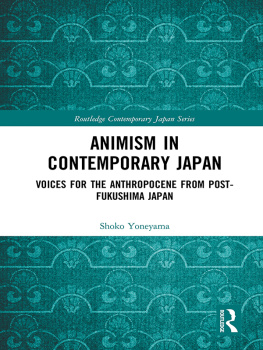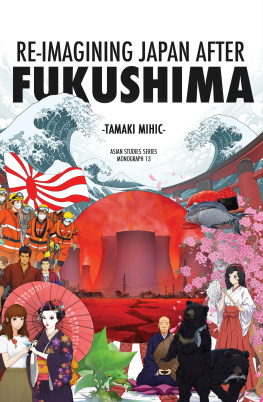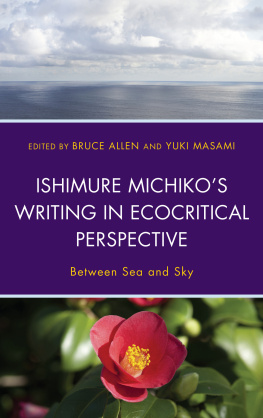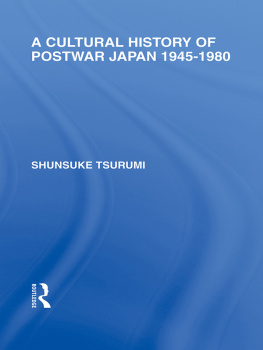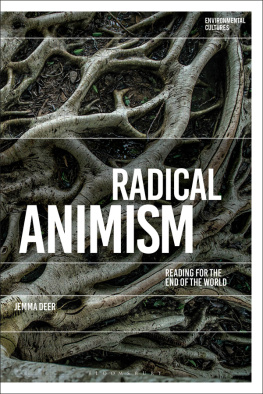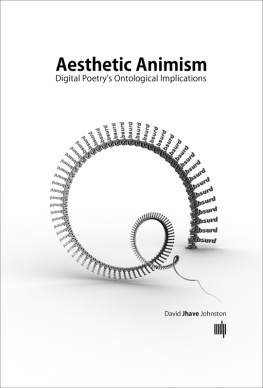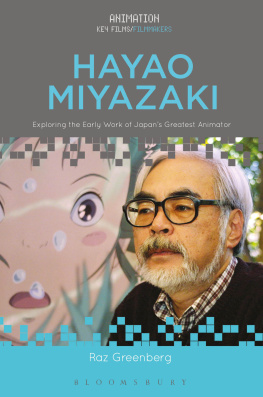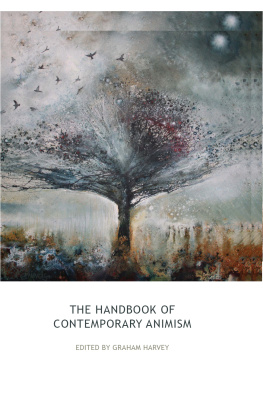Animism in Contemporary Japan
Postmodern animism first emerged in grassroots Japan in the aftermath of mercury poisoning in Minamata and the nuclear meltdown in Fukushima. Fusing critiques of modernity with intangible cultural heritages, it represents a philosophy of the life-world, where nature is a manifestation of a dynamic life force wherein all life is interconnected. This new animism, it is argued, could inspire a fundamental rethink of the humannature relationship.
The book explores this notion of animism through the lens of four prominent figures in Japan: animation film director Miyazaki Hayao, sociologist Tsurumi Kazuko, writer Ishimure Michiko, and Minamata fisherman-philosopher Ogata Masato. Taking a biographical approach, it illustrates how these individuals moved towards the conclusion that animism can help humanity survive modernity. It contributes to the Anthropocene discourse from a transcultural and transdisciplinary perspective, thus addressing themes of nature and spirituality, whilst also engaging with arguments from mainstream social sciences.
Presenting a new perspective for a post-anthropocentric paradigm, Animism in Contemporary Japan will be useful to students and scholars of a wide range of fields including sociology, anthropology, philosophy, and Japanese Studies.
Shoko Yoneyama is a Senior Lecturer in Asian Studies at the University of Adelaide, Australia. Her key publications include The Japanese High School: Silence and Resistance (Routledge 1999).
Routledge Contemporary Japan Series
71. Rethinking Japanese Studies: Eurocentrism and the Asia-Pacific Region
Edited by Kaori Okano and Yoshio Sugimoto
72. Japans Quest for Stability in Southeast Asia
Navigating the Turning Points in Postwar Asia
Taizo Miyagi
73. Gender and the Koseki? in Contemporary Japan
Surname, Power, and Privilege
Linda White
74. Being Young in Super-Aging Japan
Formative Events and Cultural Reactions
Edited by Patrick Heinrich and Christian Galan
75. The Japanese Communist Party
Permanent Opposition, but Moral Compass
Peter Berton with Sam Atherton
76. Japans Colonial Moment in Southeast Asia 19421945
The Occupiers Experience
Satoshi Nakano
77. Animism in Contemporary Japan
Voices for the Anthropocene from post-Fukushima Japan
Shoko Yoneyama
78. Political Sociology of Japanese Pacifism
Yukiko Nishikawa
79. Zainichi Korean Women in Japan
Voices
Jackie J. Kim-Wachutka
For more information about this series, please visit: https://www.routledge.com/Routledge-Contemporary-Japan-Series/book-series/SE0002
First published 2019
by Routledge
2 Park Square, Milton Park, Abingdon, Oxon OX14 4RN
and by Routledge
711 Third Avenue, New York, NY 10017
Routledge is an imprint of the Taylor & Francis Group, an informa business
2019 Shoko Yoneyama
The right of Shoko Yoneyama to be identified as author of this work has been asserted by her in accordance with sections 77 and 78 of the Copyright, Designs and Patents Act 1988.
All rights reserved. No part of this book may be reprinted or reproduced or utilised in any form or by any electronic, mechanical, or other means, now known or hereafter invented, including photocopying and recording, or in any information storage or retrieval system, without permission in writing from the publishers.
Trademark notice: Product or corporate names may be trademarks or registered trademarks, and are used only for identification and explanation without intent to infringe.
British Library Cataloguing-in-Publication Data
A catalogue record for this book is available from the British Library.
Library of Congress Cataloging-in-Publication Data
A catalog record has been requested for this book.
ISBN: 978-1-138-22803-0 (hbk)
ISBN: 978-1-315-39390-2 (ebk)
To ancestors
Figures
Tables
This book project began after an unexpected en (karmic force) connected me to Ogata Masato. He generously agreed to my interview request on three different occasions. The extraordinary power of his words inspired me to write, and I cannot thank him enough for that. I want to express my gratitude to the late Ishimure Michiko, who also infused me with the marvellous power of her language when I interviewed her at her home in Kumamoto. The letter I received afterwards, along with a poem and a drawing of a kitten, is my treasure, together with the memory of the sweets she made from lily bulbs to welcome me that afternoon. I am most grateful to Okura Shonosuke, a Noh tsuzumi player, who introduced me to Ogata-san and Ishimure-san. Without his hospitable introductions, I would not have been able to collect the interview data which is at the heart of this book. My thanks also go to Kimura Hiroko, foot painter and poet, who joined me for my fieldwork in Minamata and who has helped this project in many special ways.
My six years of writing this book were supported by a number of colleagues and friends in academia, but first I offer my sincerest thanks to Simon Avenell for his continued interest in my project and, more specifically, for reading my manuscript and raising tough questions which were indispensable for sharpening the focus of the book. I am most grateful for his critical insights and valuable suggestions. Natalie Edwards has been a marvellous mentor. Her unfailing encouragement gave me strength to keep writing, and I am most thankful for her amazing support. I am indebted to Shirley Leane, who worked tirelessly as my personal editor. Her professionalism and willingness to help got me through the project, and I am most grateful for her wonderful assistance. I also thank my research assistant, Dane Fewtrell, for finding materials essential for this book and for our inspiring conversations over many cups of coffee.
In developing the ideas presented in this book, I received helpful input from Tessa Morris-Suzuki, who invited me to contribute a chapter on animism for her book, New Worlds from Below. Mark Selden, before accepting my article on life-world to Asia-Pacific Journal: Japan Focus, suggested a follow-up interview with Ogata, and this turned out to be essential for consolidating my argument. Kent Anderson and Gavan McCormack have given me fantastic support and encouragement over the years, and for that I am most grateful. I also appreciate the training Yoshio Sugimoto gave me in comparative sociology, which forms the basis of this book.
I want to acknowledge the great help of colleagues and friends in Japan, especially that of Yoshiyuki Nagata, who introduced me to the topic of spirituality when he was a visiting researcher in Adelaide, and Nakagawa Yoshiharu, who enlightened me in the field of sociology of spirituality during my stay at Ritsumeikan University in 2008 as a visiting researcher. My thanks also go to John Breen and Nanyan Guo for inviting me to give a seminar on animism at Nichibunken, the International Research Center for Japanese Studies, in 2013 and for their kind support since.
Friends and colleagues, current and former, at the University of Adelaide have been my strong allies over the years, and without their friendship and collegiality I would not have been able to complete this project. I will not be able to thank them all, but my special thanks go to Delia Lin, Gerry Groot, Purnendra Jain, Anna Szorenyi, and Chilla Bulbeck in particular. Carol Johnson directed me to some key references with quotations, which were very valuable indeed. I also would like to acknowledge the intellectual stimulus and energy I received from my students at the University of Adelaide, including my PhD students, Maki Hammond and Rie Kido. I am also thankful to Jennie Shaw, Susan Oakley, Kayoko Enomoto, Akiko Tomita, Miwako Takasawa, Midori Kagawa-Fox, Shamira Barr, and Sarah Hoggard for providing me with various kinds of support over the years, which also helped me to complete this project. The preparation of the manuscript was financially supported by the School of Social Sciences Staff Research Fund 20162017.

